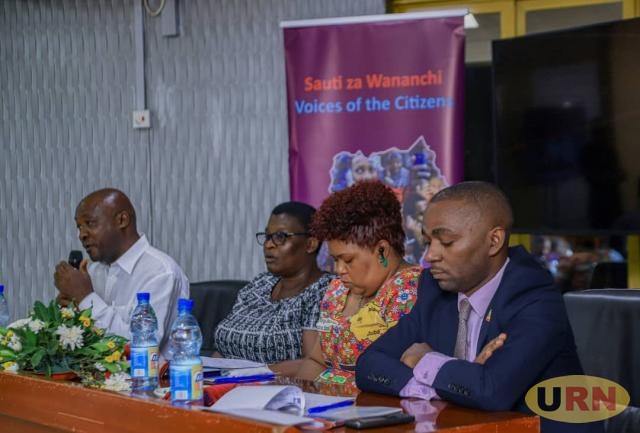
Kampala, Uganda | THE INDEPENDENT | Majority of Ugandans are concerned about the impact of climate change on the lives, a new report released by Civic Organization Twaweza on Friday shows.
According to findings in their latest mobile phone-based Sauti Za Wanaichi survey in which researchers at Twaweza collected data from 2,762 respondents from across the country between 25 October and 25 November 2023, 86% revealed being concerned about the impact of climate change on their lives.
While breaking down the results, Marie Nanyanzi, a researcher at Twaweza said majority revealed experiencing more rain than five years before whereas others said the rainy season was shorter than before. A small number at 5% said things are normal as they hadn’t observed anything.
She further says seven out of ten citizens report that agricultural yields have declined in recent years, and the same number say that securing basic necessities for their households is more challenging.
The research brief titled A burning planet? It’s already happening: Ugandan citizens’ opinions and experiences of the climate crisis further shows that citizens are experiencing the effects of climatic or environmental changes at household level at 82% whereas 83% responded that the effects are being experienced at the community level.
The main effects of climatic or environmental changes affecting households are low crop yields at 40% and lack of food at 17%. The same issues dominate community-level impacts at 32% low yields and 17% lack of food.
Nanyanzi says at the country level, most respondents mentioned damage to roads as the biggest impact of climatic events.
When it comes to recommendations for mitigating adverse effects of climate change, 52% of respondents endorsed planting trees, and nearly as many (45%) claiming to have already undertaken this activity.
Following closely behind is advocating for tree protection or planting cited by 36% of respondents. This matches with citizens’ views on the causes of climate change, where70% identify deforestation as a major cause of climate change.
Responding to these findings, Shadow Environment Minister Christine Nakwero said that results are an indicator that the population have understood that climate change is real and the need to emphasize adaptation and mitigation. For her, urging people to plant trees alone will not be helpful with mitigation pointing out the need to make ecocide a crime.
Some of the respondents in Sauti za Wanainchi agree with her as more than half of citizens were in agreement with the statement that those accountable for climate change should shoulder the entirety of the burden for adapting to its effects. Approximately seven out of ten citizens (68%) supported this notion.
On his part however, Robert Turyakira the Deputy Executive Director of an NGO the Environment Sheild pointed out that climate change has become a cash cow as money earmarked for managing environment disasters many times end up being swindled.
Already she says money earmarked for climate smart agriculture has not done much.
For him there’s need to start the disaster fund as proposed in the law than just making political appearances whenever a climatic disaster hits.
*****
URN
 The Independent Uganda: You get the Truth we Pay the Price
The Independent Uganda: You get the Truth we Pay the Price





